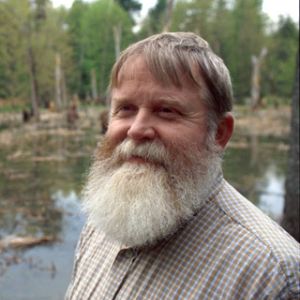
Thomas Hudspeth
Professor Emeritus of Environmental Studies & Natural Resources, UVM
UVM Environmental Program
BURLINGTON,
Roles at NAAEE
Languages
Interests
Awards
Social Links
Professor Emeritus, Environmental Studies & Natural Resources, University of Vermont http://www.uvm.edu/rsenr/profiles/thomas_hudspet
Founder and Co-coordinator, Greater Burlington Sustainability Education Network http://www.gbsen.org
802-578-7792
Thomas.Hudspeth@uvm.edu
Read More
Tom Hudspeth is Professor Emeritus of Environmental Studies and Natural Resources at the University of Vermont (UVM). He came to UVM in 1972 to help set up one of the first university-wide Environmental Studies programs in the U.S.
Tom’s scholarship and teaching relate to sustainability education and sustainable communities, applying insights of behavioral sciences and learning processes to peoples' beliefs, values, attitudes, and behavior to help them become more environmentally literate and to live more sustainably, in greater harmony with--and within--the natural world. He contributed scholarly work and a passion for teaching and engaging students and communities in creating a shared vision of a more sustainable world, transitioning toward an ecologically resilient and socially equitable future, brought to life in “real world” community projects near and far.
Building on Ernest Boyer’s “scholarship of engagement” for all his courses, Tom developed service-learning partnerships for sustainability with various sectors of society. His courses included: Sustainability Education, Creating Environmentally-Sustainable Communities, Place-based Landscape Analysis and Sustainability Education, Environmental Interpretation, and 18 travel-study courses to Latin America--Belize, Costa Rica, Ecuador, Honduras, Brazil--addressing ecotourism as a tool for sustainability.
Aware of the power of storytelling-- of compelling narratives that capture peoples' imaginations and connect them to their place and to others—Tom claims, “We need to change the story in order to change the future, to consciously create the sustainable future we desire; and sustainability stories can certainly help with this important task. They provide a change in thinking, a valuable means of shifting mental models and bringing about behavior change and even paradigm shifts.” Recognizing that a much better future, an ecologically resilient and socially equitable world is possible and that we already have working demonstrations and examples of aspects of it that need to be taken to scale and replicated, over a quarter century Tom and students in his Creating Environmentally Sustainable Communities course wrote and videotaped countless Sustainability Stories about individuals and groups in the Burlington area who serve as sustainability exemplars or role models for others to emulate in transitioning to more environmentally-sustainable communities. These place-based stories help make the concept of sustainability come alive, make it more concrete, humanize it, and put a face on it. They let people know what a sustainable future could look like; demonstrate that sustainability can be achieved locally, and that alternatives exist to business-as-usual, overconsumption, the “growth at all costs” model that we are addicted to. They offer hope, inspiration, optimism, and empowerment to counter the doom-and-gloom, despair, and anxiety so often experienced; help work toward a paradigm shift and a change in mental models toward sustainability that will help society achieve a smooth landing instead of overshoot and collapse. Celebrating successes and positive solutions in compelling stories can inspire and empower others--building on humans’ innate capacity and desire to be cooperative, altruistic, empathic--and show them that people can make a difference.
He built on his research findings related to citizen participation in urban waterfront revitalization in Burlington as an activist, co-founding two citizen groups: Citizens Waterfront Group to develop the 8-mile Burlington Bicycle Path on an abandoned railroad bed along the Lake Champlain lakefront; and Burlington Waterfront Central to work on the Lake Champlain Basin Science Center and assure people-oriented activities as Burlington revitalized its urban waterfront. In his work with individuals, organizations, and communities, Tom uses Rachel and Steve Kaplans’ Supportive Environments for Effectiveness framework to bring out the best in people.
Tom founded and serves as co-coordinator of Greater Burlington Sustainability Education Network (GBSEN) http://www.gbsen.org, a Regional Center of Expertise in Education for Sustainable Development recognized by United Nations University and part of a network of 179 RCEs across the world that uses collective impact from multi-sectoral partnerships to address the 17 U.N. Sustainable Development Goals.
Since retiring, Tom has been involved with GBSEN; engaged with climate change education, communication, and action as a Climate Reality Project leader and mentor, especially telling Climate Stories; joined with others over the age of sixty in Third Act to campaign on issues of climate change, racial equity, and the protection of democracy; and—as a master gardener—planted pollinator gardens and rain gardens and other green infrastructure projects.
User Activity
No activity yet.

